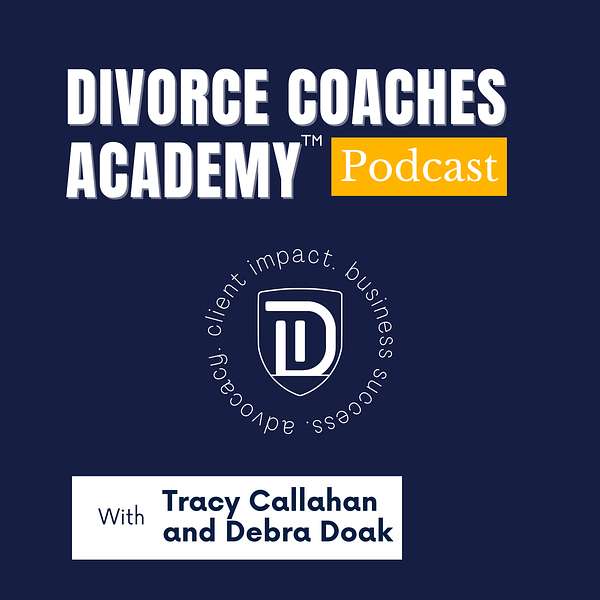
Divorce Coaches Academy
Divorce Coaches Academy podcast hosts Tracy Callahan and Debra Doak are on a mission to revolutionize the way families navigate divorce. We discuss topics to help professional divorce coaches succeed with clients and meet their business goals and we advocate (loudly sometimes) for the critical role certified divorce coaches play in the alternative dispute resolution process. Our goal is to create a community of divorce coaching professionals committed to reducing the financial and emotional impact of divorce on families.
Divorce Coaches Academy
The Modern Divorce Ecosystem: What Can Happen When Families Heal Instead of Fight?
Send Us a Message (include your contact info if you'd like a reply)
Divorce isn't just about legal paperwork and court proceedings—it's a deeply human journey that transforms families forever. What's often missing from traditional divorce approaches is acknowledgment of the emotional landscape, communication challenges, and the complex human dynamics that determine whether a family heals or fractures during separation.
The "modern divorce ecosystem" is evolving rapidly as families seek alternatives to adversarial proceedings that often leave lasting damage. Today's divorcing couples want more than just legal settlements; they're looking for guidance on effective communication, co-parenting strategies, and paths toward emotional healing. This shift reflects broader societal changes and recognition that while conflict in divorce is inevitable, destructive conflict is optional.
Divorce coaches occupy a unique position in this evolving landscape. Unlike attorneys or therapists, coaches focus specifically on developing practical skills that help clients navigate both the emotional and logistical challenges of divorce. They serve as objective thinking partners who help clients manage overwhelming emotions, prepare for difficult conversations, and build the communication skills necessary for productive conflict resolution. These skills prove especially crucial for parents who must transform their relationship from intimate partners to effective co-parents—a transition that impacts not just minor children but adult children and extended family as well.
Professional collaboration represents another significant trend, with family law attorneys, mediators, and mental health professionals increasingly recognizing the value divorce coaches bring to the process. Some law firms now employ in-house coaches, while many professionals are adding coaching skills to their own toolkit, finding that this approach not only better serves clients but also reduces the burnout rates common in family law practice.
Ready to learn more about how divorce coaching can transform family transitions or enhance your professional practice? Our next certification programs begin July 6th for Australia/New Zealand and July 20th for the US. Connect with us at divorcecoachesacademy.com to join a growing movement that's changing how families experience divorce.
Learn more about DCA® or any of the classes or events mentioned in this episode at the links below:
Website: www.divorcecoachesacademy.com
Instagram: @divorcecoachesacademy
LinkedIn: divorce-coaches-academy
Email: DCA@divorcecoachesacademy.com